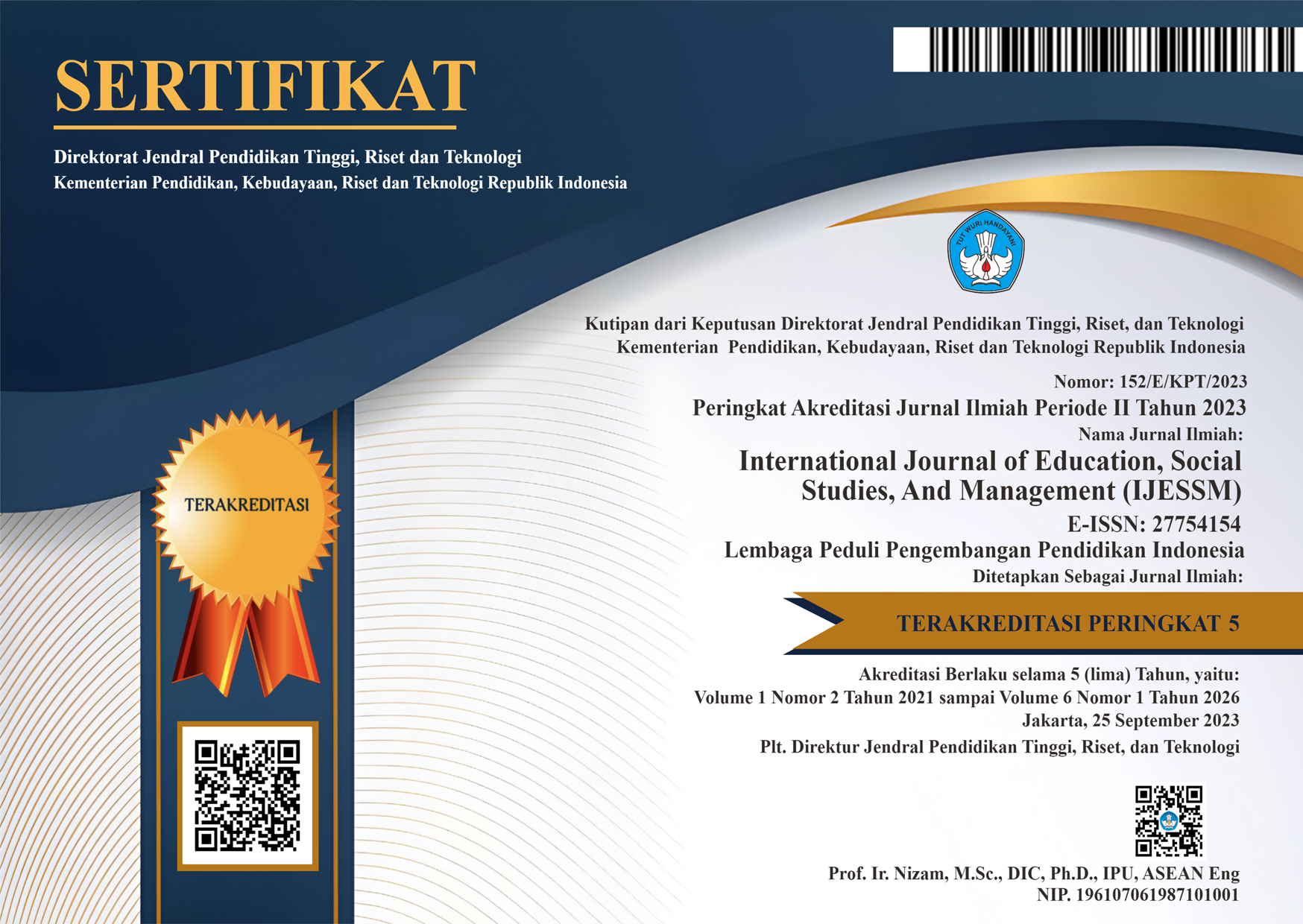Gender Difference Influence Students’ Performance in Learning Math in Secondary Schools
DOI:
https://doi.org/10.52121/ijessm.v3i1.114Keywords:
Gender Difference, Mathematics Learning, Secondary SchoolsAbstract
As mathematics has been viewed for decades as a strereotyped male domain, gender differences in mathematics learning have received strong attention from scholars. This study, therefore, investigates the influences of gender differences on students’ performance in learning math in secondary school context. The study used a synthesis research. This method of research is undertaken by synthesizing any relevant studies in order to draw conclusion. Some empirical studies investigating the issues of gender difference and learning match were carefully analyzed and synthesized to draw the links between gender differences and secondary students’ academic achievements in learning math. The findings show that male students outperform female students in mathematics learning for three reasons. First, social gender stereotypes about students’ math ability may lead students to endorse math-gender stereotype themselves. This kind of stereotype makes male students more confident whereas female students become more anxious. Second, personality and spatial ability, as representors in mentality, have commonly been proven that another reason for the advantage of male students in mathematics education. The last is physical advantages in which current evidences suggest that males are more active in some brain areas which are related to mathematics ability. This essay highly recommends future research focus on physical reasons of gender difference in mathematics learning.
Downloads
Published
How to Cite
Issue
Section
License
Copyright (c) 2023 International Journal Of Education, Social Studies, And Management (IJESSM)

This work is licensed under a Creative Commons Attribution 4.0 International License.

















